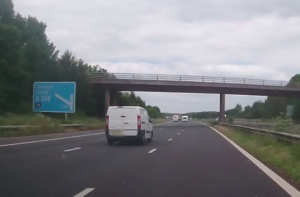Government plans to make limited autonomous technology legal on UK roads later this year will have “no obvious benefits to fleets” but will create several potential pitfalls, according to Peter Golding, Managing Director of FleetCheck.
The comments come after the Department of Transport announced last week that driverless vehicles with Automated Lane Keeping Systems (ALKS) would be on the roads by the end of the year.
But Mr Golding said ALKS had no ‘obvious purpose’ beyond perhaps being a real-world trial exercise. Speaking to Fleetworld.co.uk, he said: “The Government says that the thinking behind allowing this usage is to improve safety but travelling along a motorway in congestion conditions at relatively low speeds is not a major accident issue.
“Indeed, any model that is sufficiently advanced to have ALKS fitted will almost always also have automatic emergency braking technology or radar cruise that will stop the car if the vehicle in front brakes anyway. Their plans appear to have no real advantage.”
He said there would also be“potential pitfalls” for fleets.“It already appears that there is existing uncertainty among some drivers of cars fitted with autonomous technology in terms of what they are allowed to do legally and exactly where the limitations of the devices themselves lie. This may add to that confusion.
“There are also fundamental issues that may not have been fully explored. If a driver can take their hands off the wheel on a motorway using ALKS, then there is clearly an implication they can do something else instead.
“However, doing anything other than driving is almost certainly illegal. You couldn’t check your e-mails on your laptop, for example, or watch a video on your smartphone, or even take a nap. Your eyes must remain on the road.”
Mr Golding said that, at the very least, fleets would need to produce policy documents that would aim to ensure that drivers understood how to use the technology safely.
“This needs to be, as far as possible, watertight from a fleet policy point of view. Employers need to ensure that drivers are given as much hard information as possible about their specific vehicle and how any autonomous technology fitted can be legally and safely used.”
























